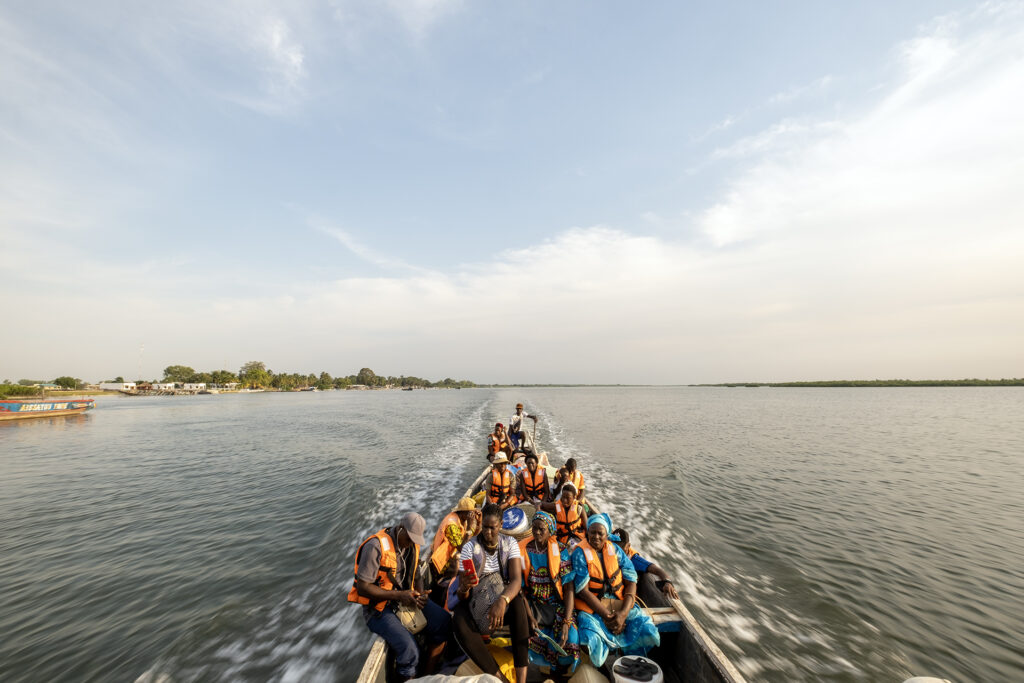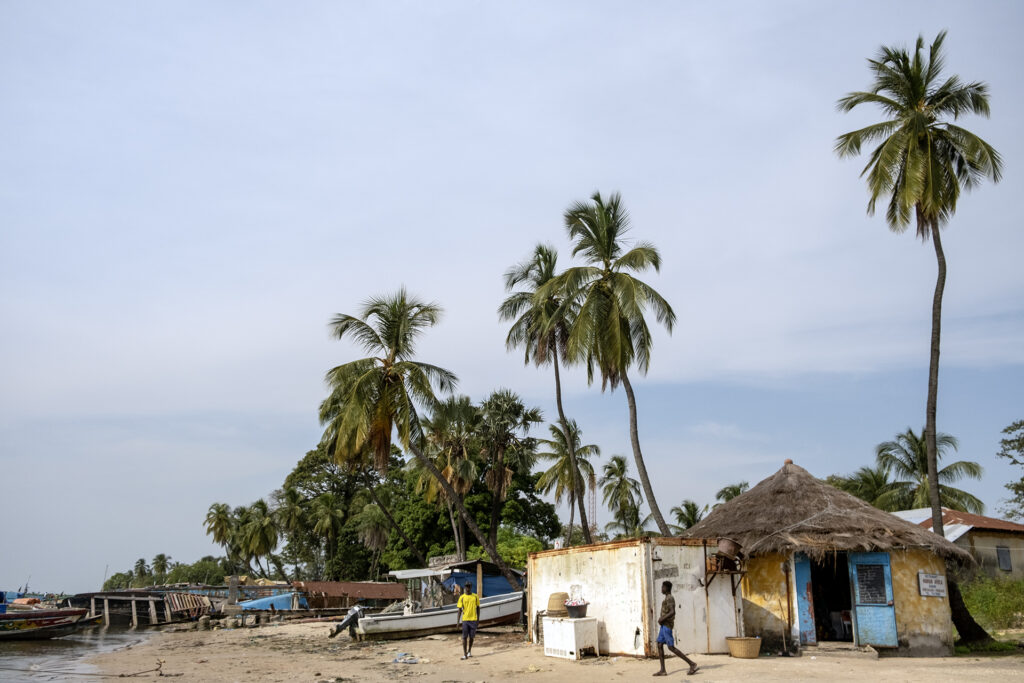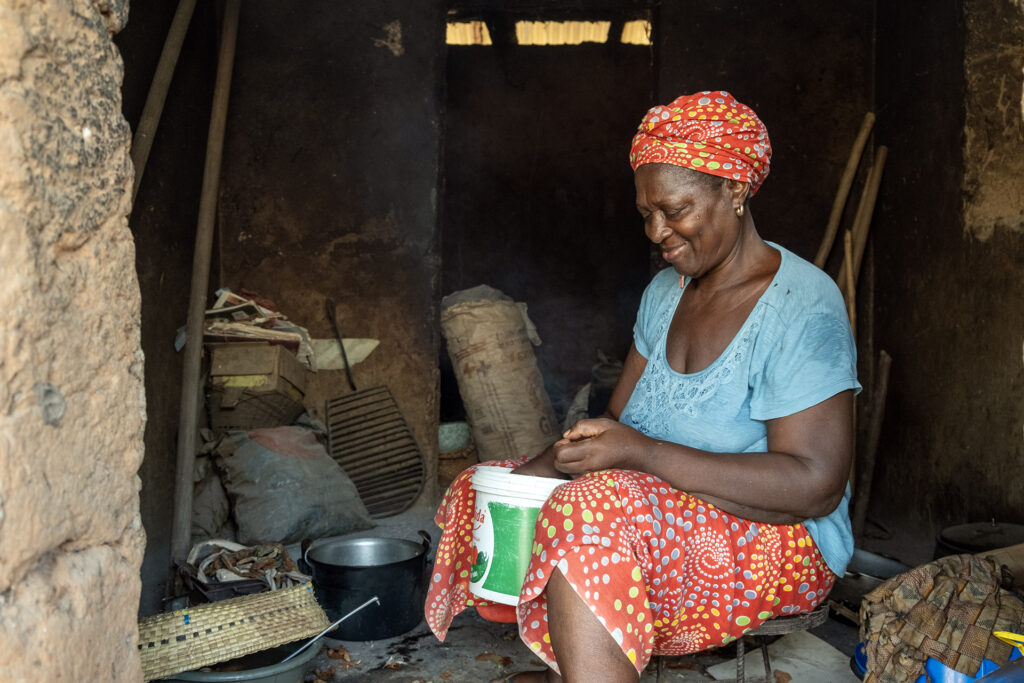When International Mission Board missionary Moses knew that God was calling him to go make disciples on islands near Senegal, his knee-jerk response was no. His hesitance had nothing to do with disobedience or uncertainty about the islanders. It wasn’t about the persecution believers faced in these areas.
The issue was that Moses couldn’t swim. Island ministry had to be off the table, for his own safety.
Moses wasn’t usually hesitant to follow God’s will. He’d obeyed it when he felt God calling him to salvation in his early 20s. He’d listened to God’s voice to travel to the United States from West Africa to attend Bible college. Originally from Togo and having lived in Senegal for seven years, this journey meant leaving home. After college, he followed God’s call to seminary and to marry his now wife, Beth. And when the Lord led the couple back to West Africa – specifically Senegal, the place where his wife served as a Journeyman, he obeyed.
But ministry on islands when you can’t swim – that seemed like a different story.
“When the Lord called me to do the ministry [on the islands], I said, ‘No, it’s not possible because I don’t know how to swim.’ And immediately He gave me Isaiah 43: 1-2,” he said, referring to verse two that says, “When you pass through the waters, I will be with you; and through the rivers, they shall not overwhelm you…”
He clung to that verse and his very own orange life jacket, not trusting the ones that the boat provided, and stepped into the small, wooden canoe, ferrying him to the people on the islands that so desperately needed the gospel he had to offer.
He laughs that the first few times he took the journey to the islands, he was still terrified. But now, much like Jesus napped on the boat amid the storm, he is relaxed enough on the boat to even snooze.
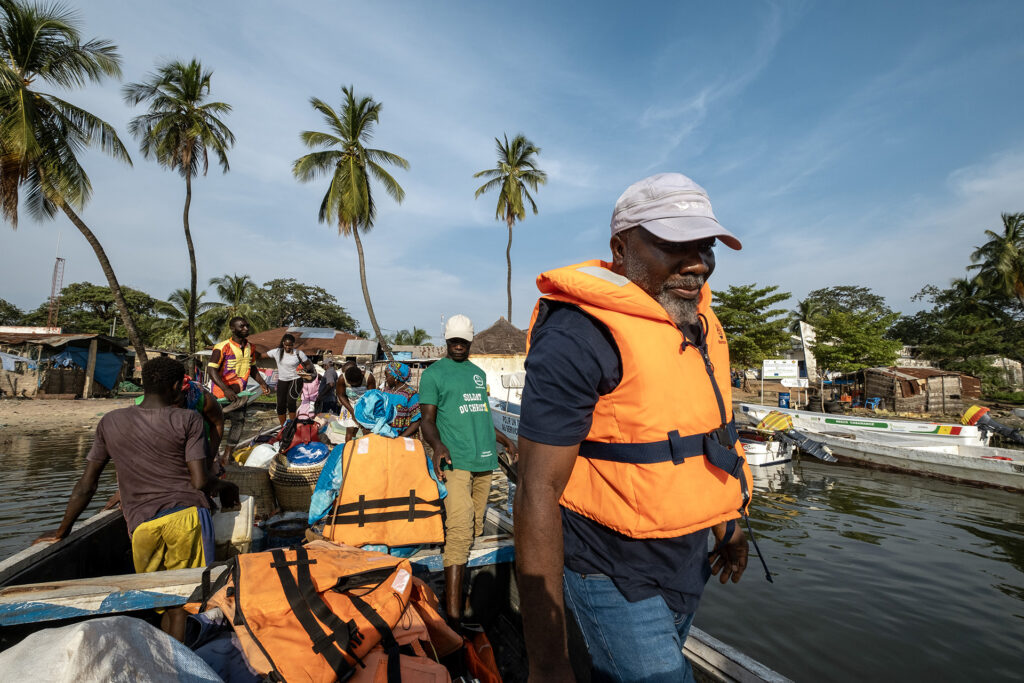
IMB missionary Moses boards a canoe to ferry him across the water to an island where he has planted a church. IMB Photo
He knows the trip is well worth it. After being in Senegal since 2006, Moses was put in charge of rural ministry in 2022. He knew these islands desperately needed the gospel. The mainland national churches couldn’t reach them because the cost of travel to the islands was too high.
The people on these islands have many needs. They live in an area where animism dominates the religious landscape. It’s not rare for them to see an animal sacrifice happening in the village. They’re sacrificing to their ancestors – to appease them. Fear dominates the religious landscape. If something happens in their village, they assume it’s because their ancestor is upset. In other areas, Islam is strictly adhered to. It’s almost expected that they attend mosque each Friday.
Making a decision for Christ can cost new believers everything.
After conversion, most families try to bribe their son or daughter back to their traditional faith. When they don’t recant, because they’ve rejected the worship of their ancestors or won’t bow a knee to false gods, their families reject them. Wives are taken away from husbands. Their businesses are often boycotted. In a society that works together in the rainy season on the farms, the believer is left to work alone. When they die, they have no burial place among their families.
But, on these islands, the gospel has prevailed. Moses has seen people come to faith and a young but growing church planted. The gathering of new believers stands strong, despite persecution, meeting together in homes.
Discipleship on this scale can’t be done by one man alone, Moses admits. Years before he reached the islands, he started partnering with healthy, growing mainland churches and Southern Baptist partners to disciple rural, mainland churches.
He’d found these rural fellowships a few years ago, after hearing about them from national partners. He investigated, and what he saw jarred him.
The gatherings of believers in the rural areas of the mainland wouldn’t even consider themselves churches. They’d never been taught how to preach the Word, how to worship in song, how to collect an offering, how to take the Lord’s Supper – any of the biblical examples of corporate worship. Small groups of believers would gather in mud homes to pray, but didn’t know what else to do when together.
- A canoe ferries passengers across the water to a remote island. IMB missionary Moses has overcome his fear of water to bring the gospel to these islands. IMB Photo
- While the scenery in the small fishing town is idyllic, the reality of lostness is prevalent. Animistic practices and sacrifices can be observed on a weekly basis, and if someone turns to Christ, persecution is likely. IMB Photo
- A woman prepares a meal in her home. The church plant on the island meets in houses much like the one pictured. IMB Photo
He asked the groups, “How did you come to believe in the Lord?” They replied they heard the gospel through groups visiting and sharing the gospel, usually volunteers from churches in the U.S. Sometimes, they heard the gospel through digital media. Those new believers kept sharing the gospel, using the same SD cards that showed them the way of salvation. He asked how his team – comprised mainly of national believers – could come alongside them and help them.
The new Christians he encountered begged Moses for training. They needed to learn how to be a church. National congregations in the city stepped up to help Moses, and they’ve been using orality strategies to bring training to both the mainland and island fellowships.
While the new church plant on the islands only heard and began responding to the gospel a few short years ago, Moses has found that training leaders in the rural mainland and remote island churches is similar. And it’s done through partnership. Churches from the U.S. get involved with the training on short-term trips, making it an effort highlighting the cooperation of Southern Baptists. Southern Baptist Convention President Bart Barber’s church, First Baptist Church, Farmersville, Texas, is one of the churches that has been coming to the area for years, partnering with Moses in ministry.
For days at a time, church leaders – from Senegal and the U.S. – spend time sharing with the rural church leaders through a pastoral training. Sometimes they’re out on the islands, training leaders of the new churches. Other times, they’re meeting on the mainland, gathering national pastors and leaders in a central location.
Using orality, they teach their students how to share the Word of God through Bible storying. This kind of training and evangelism is an effective way to teach in cultures that are not predominantly literate or do not have Scripture in their own languages. Moses uses these strategies to also teach the biblical model of corporate worship. Together the healthy national churches in the area and the missionary team are even working toward training the house churches – whether on land or at sea – to worship through music.
During the training, the entire team hopes to truly demonstrate for the believers what church looks like.
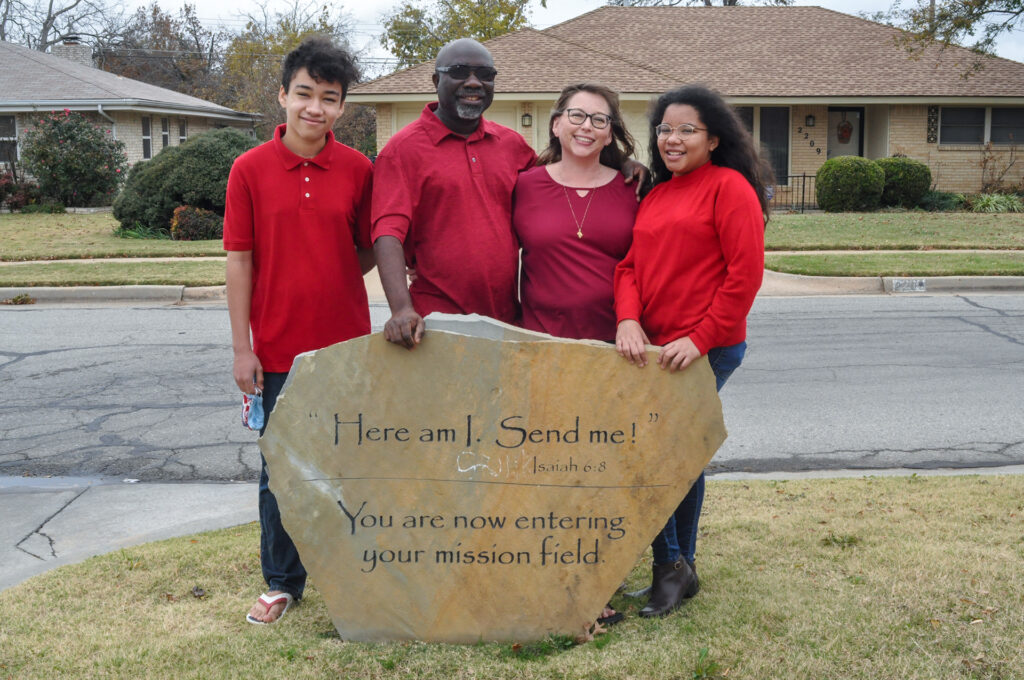
IMB missionaries Moses and Beth with their two children, Elijah and Esther, who are now young adults. Photo Provided.
Moses assumed that since he’s West African (Togolese), and his wife is a former IMB Journeyman to Senegal, they’d be prepared for everything. His rural ministry has ramped up in the last few years, and he sees the persecution and need for training and discipleship among the people he’s called to. He knows that even the fact he’s West African couldn’t adequately have prepared him for the ministry God’s entrusted him.
“The fact I am from here, I thought ministry would be very easy for me,” he said. “But what gets the engine going is not any knowledge whatsoever. It is abiding in Christ, praying a lot, understanding the nature of the warfare. It’s not of this world.”
Southern Baptists celebrate African American and Black pioneers whose lives inspire us to continue the work of solving the world’s greatest problem — lostness in February. Materials and more info on George Liele Day can be found at imb.org/george-liele.


